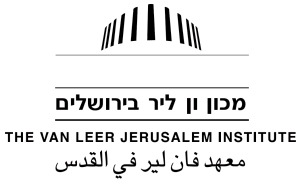Prof. Uriya Shavit, the head of the Department of Arabic and Islamic Studies and of the Religious Studies Program at Tel Aviv University, discusses his new book Scientific and Political Freedom in Islam: A Critical Reading of the Modernist-Apologetic School, which explores Islamic theologians’ efforts to harmonize religion, science and modern systems of government.
Sponsors
This season of the Tel Aviv Review is made possible by The Van Leer Jerusalem Institute, which promotes humanistic, democratic, and liberal values in the social discourse in Israel.
Support the show on Patreon
Receive extra segments, book discounts, and other patron-only perks by supporting the show on Patreon. Click to find out how a handful of dollars a month can help.
Photo by Issam Rimawi / Flash90: A Palestinian works on restoring manuscripts in the Manuscript Center of Al-Aqsa Mosque in Jerusalem.








This interview is exemplar for why I like this program so much: an infectious joy for thought which melds interviewers and interviewee into a friendship of understanding where arrogance and status have no place, regardless of disagreements of any moment, this an expansive public intellectualism which promises, perhaps as a matter of faith, to increase communities of discourse far beyond the recording booth, this perhaps only remedy to the destructive put downs which we now commonly use to measure ourselves, define progress, and declare truth. After this Autumn of the Patriarch long first sentence I’ll try to say something on this program’s content.
—
“History doesn’t have a direction.”
–the interviewee
And so a true social science must be able to account for the possibility of its own demise. There is no guarantee of progress but there should be predicted intimation of fall and, as such, there can be no cherished view of people moving to perfection. Science should recognize that it has always lived with what is not it and admit this will always be so. I do not believe most people understand science at all; they understand technological outcome, once emblemed in the car and television, now perhaps the cell phone and tablet. Never have they cared much about how these worked, only that they did, at what procured cost, and at what maintenance. We become adept at words, once “carburetor,” “alternator,” now “mother board,” “gigabyte,” but still some sorcery beyond our ken. Using is not understanding; if otherwise, imagine what little our days would have. The same can be said of scientists outside their field–even within such. Western culture has never been science culture, and the will to doubt does not pervade either. Most scientist do what they are told; when change comes, it is not from them–they simply do a new told. Science as institution is quite distinct from science as innovative, risking mind. I’d go further and say science should recognize that as it has bestowed benefits on the greater population, so it has parasitized the efforts of that population to its own ends, not all of which return population wide benefits. Science has been, and always will be, dependent on those necessarily ignorant of it; and conversely. Science must see itself as frequency dependent in a population, actually needing, in a materialist sense, benefits from those hostile to it.
When material progress bloomed science could do no wrong. It offered employment in trickle downs, better medical care, material enjoyment. Now science is as apt to produce barriers: medicine becomes too costly; employment is lost via automation with no clear replacement for the actual people losing such; climate change and environmental regulation portend more constrained lives for survival, expansive vistas limited to what we can view on tablet videos. Evolution, climate change, macro economics warning of world wide recession or depression–all of these erase individual efficacy for greater process akin to an uncaring god using us momentarily then erasing us from all notice. We never really could understand these things, but earlier could live a myth of personal control and advance, now slipping as science details costs, not benefits. One way out is to fuse with the nation in mind, make all one for national cause, there personal efficacy returned as patriotism and obeyed command. Personal doubt, the doubt needed for advance in science, so we are told, pays no bill. Given choice between wisp of existence or caring God embracing us into eternity of preserved soul is there really any doubt which most will choose anywhere in the world?
At the lived ground level of most people, I doubt there is great difference between the West and Muslim countries. Yes, information flows are different. But what constitutes survival is rather invariant. Presently, I think, we are seeing challenge to elite control which has harbored science in the West; it comes in the name of Trump, Cruz, Brexit, and, the Alternative for Germany. Jeopardy is here now because it has always been latent. The question is whether the very benefits of science have begun to shake its platform of elite control as cost looms over benefit. We have always believed material progress will continue; what if not? That is where social science must go to question its own persistence.
Modernity is far from just about science. Modernity, through the benefits of science, replaced people with television, gave enhanced transport at the cost of sustained family relationships, creating a mythical nuclear family as sole building block of society. Religion is about the regulation of others–God commands, Buddha reasons unto submission. We obey God because He will force others to obey too, in the fullness of our imaginations, but oft on our personal grounds too. We do not want science to tell us what to do, for that is a breech of freedom we think we have and will only give up for the joy of God, of something which while beyond us, does not, in this competitive world, belittle us for others’ advance. Modernity never lost religion, it needs it, and science doesn’t know what to do about that.
Nor do I.